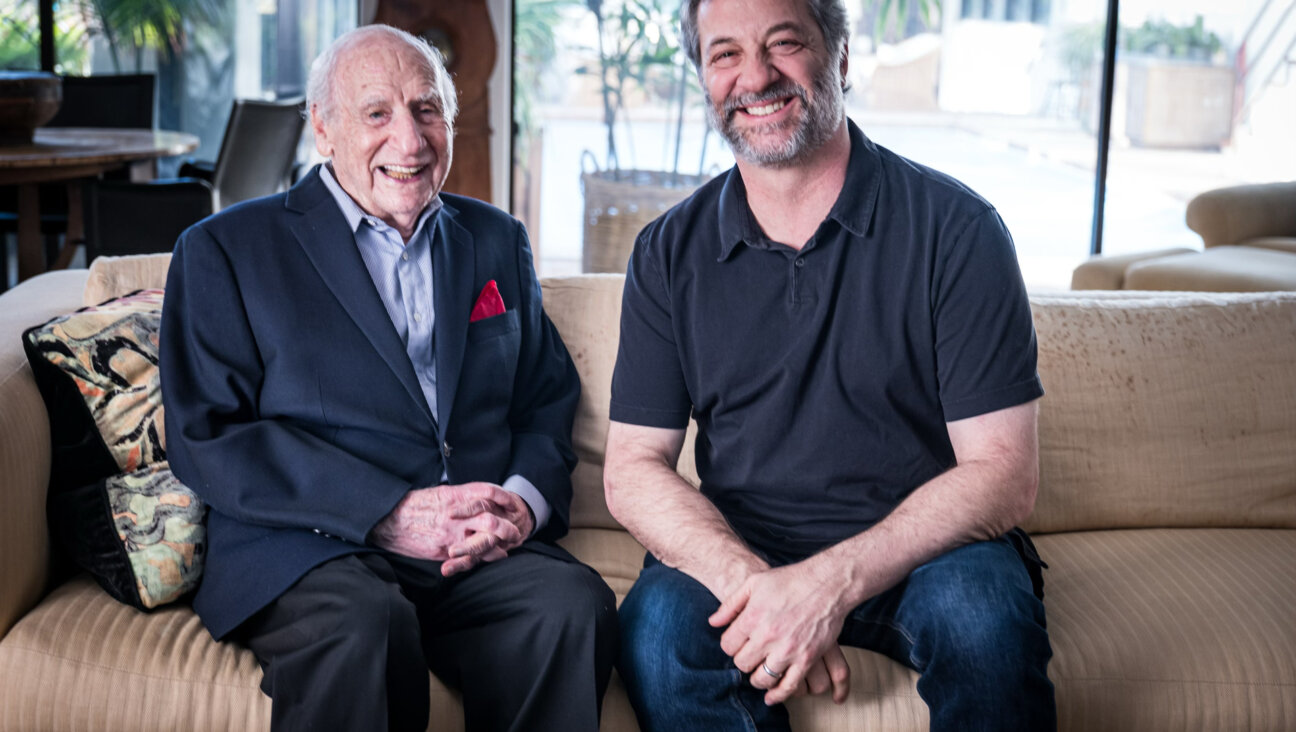October 1, 2004
Key to Social Security Is Reforming Program
It is odd that the Forward has chosen to at long last address the issue of the red ink that is a daunting part of our future, given the fact that I cannot recall another instance in which the editors objected to any spending proposals put forward heretofore (“Mortgaging our Future,” September 17).
However, as for the substance, I cannot agree that the Forward has a good idea about the source of the problem and the nature of the solutions. In criticizing the abundant wisdom of Alan Greenspan, the editorialist states: “This newspaper has argued before that the national fixation on Social Security as the key to the budget mess is misguided. Social Security has its own revenue stream.”
First, we all should applaud at least a little bit of “fixation” on the issue, given the fact that the Congressional Budget Office has stated: “The assets of the Social Security trust funds do not represent any real stock of resources set aside to pay for benefits in the future.” Given that Social Security unfunded benefit liabilities loom so large, we will bankrupt the nation if we follow the advice of the Forward and do nothing.
Second, add Medicare expenditures that are rising exponentially, and the problem is clear as crystal that these two mammoth programs must be reformed immediately if we are to curtail the national shortfall.
But this is not clear at all to the editorialist, who instead seeks to blame the recent tax cuts that have only improved our economic posture instead of weakened it, blames the war on terrorism in Iraq as “little more than theft” and describes President Bush’s tiny program for encouraging home and stock ownership as “greed.”
As a conservative, I deplore the fact that the president has been a big spender in his first term. But surely Bush will spend a whole lot less than the favored alternative of the Forward and will undoubtedly cut taxes and reform the gargantuan programs that are devouring so many trillions of our tax dollars.
David Friedman
Bethesda, Md.
Tuition Is Affordable For Adult Ed Courses
All of us at Lehrhaus Judaica were honored to have been featured, along with the exemplary Skirball Center at New York’s Temple Emanu-El, in Leonard Fein’s insightful opinion column on adult Jewish education (“Getting Our Learn On,” September 24).
He writes perceptively about the challenges we face in balancing our curriculum between basic courses on classical texts and timely classes on ecology, sexuality and mysticism. He understands Lehrhaus’ formidable task of serving a Jewish community as dispersed as the San Francisco Bay Area, with nine counties spread over 10,000 square miles.
But we were puzzled by the “problems” that Fein raised regarding tuition costs and “inadequacy of scholarship support.” Our fees average around $10 per class session, and our registration form clearly states that we offer partial tuition waivers based on need. Since our founding in 1974, no student has ever been turned away due to the lack of funds. We feel that this policy, along with our broad array of course offerings and our wide geographical reach, has accounted for our high enrollment: about 4,000 students annually.
Fred Rosenbaum
Founding Director
Lehrhaus Judaica
Berkeley, Calif.
U.S.-Mexico Border Wall Incomparable to Israel’s
Opinion writer Douglas Kahn complains that whereas Israel is condemned for its security barrier, no one objected when the United States “built a barrier along the border with Mexico” ( “When a War of Words Becomes More Than Just Semantics,” September 3).
But Kahn overlooks a crucial difference: the American barrier is on the American side of the border. It does not go into Mexico, cutting off tens of thousands of Mexicans from their jobs, crops, families and social services. It does not involve the destruction of Mexican orchards and homes. It was not part of a land grab.
Rather than complaining that Israel is not getting a “fair shake,” Kahn, as a leader in the Jewish community, should criticize those Israeli policies that violate the human rights of Palestinians. Surely, if the roles were reversed, Kahn would condemn policies of any “Christian” or “Muslim” state but was so destructive of the rights of Jews. And Kahn would rightly expect Muslim or Christian leaders to condemn the policies of their co-religionists.
Edmund Hanauer
Director
Search for Justice and Equality in Palestine/Israel
Framingham, Mass.
Group’s Partisanship Shows in Comment
As a former supporter of the American Jewish Congress, I was surprised to see David Twersky make such apparently partisan statements so close to the fall presidential election, and I’m sure I’m not alone (“Some Worry About Kerry Plan’s Price,” September 24). My understanding is that as a 501(c)(3) organization, AJCongress should not be taking sides in such blatant fashion.
And yet, they only challenge John Kerry on Israel, while supporting President Bush.
What about Bush’s past opposition to the security fence? What about his recent criticism of Israel in front of the United Nations? And the mixed White House response to Israel’s targeting of Hamas leader Sheik Ahmed Yassin in March? As a “nonpartisan” organization, AJCongress should know better.
Samuel Harris
West Lafayette, Ind.
P.A. Minister Should Examine Arafat’s Role
“But Israeli domestic factors, particularly then prime minister Ehud Barak’s call for early elections and Prime Minister Sharon’s subsequent refusal to negotiate, have prevented concluding where the negotiations left off”
Qaddoura Fares is just plain wrong about many of the points he addresses in his September 24 opinion article, or perhaps as a member of the Palestinian Authority he cannot say the truth (“A Palestinian Call To Reactivate the Partnership for Peace”).
I just finished reading “The Missing Peace” by Dennis Ross, which I hope will be available in Arabic.
According to Ross, the Palestinian and Israeli negotiators reached an agreement at Taba. Everyone had concurred, but the Palestinians felt that their agreement needed Yasser Arafat’s blessing. Arafat rejected it and then lied to his own people about why he did so.
It seems to me that the status quo has worked well for Arafat and he has no reason to change it. It was Arafat who did more than anyone else on the planet to get Ariel Sharon elected prime minister. The P.A. cannot complain about Sharon now. President Clinton told Arafat that all he would do was get Sharon elected, but Arafat said there was no difference — which is as ridiculous as the people who told me that there was no difference between George Bush and Al Gore.
I would like Fares to acknowledge that Arafat’s rejection caused the current crisis. It also decimated the peace movement. Many of us who support a two-state solution felt betrayed by Arafat’s rejection and the unremitting hatred that followed Taba.
Susan Stein
Philadelphia, Pa.
Writer Inconsistent In Appointee Criticism
A September 24 letter writer distinguishes President Bush from Senator John Kerry on the question of Supreme Court nominations by arguing that the president, as a conservative, would choose judges who are “typically more deferential to state and local governments on moral issues” (“In Bush We Trust”).
So how does the letter writer explain Bush’s advocacy of a nationally binding constitutional amendment on the issue of same-sex marriages and even civil unions? What happened to the principle of giving state and local governments the benefit of the doubt on social issues?
The president often attacks what he calls “activist judges.” Can there be anything more activist than amending the Constitution to reflect personal ideologies, no matter how divisive they might be?
Daniel Mann
Bethesda, Md.
















